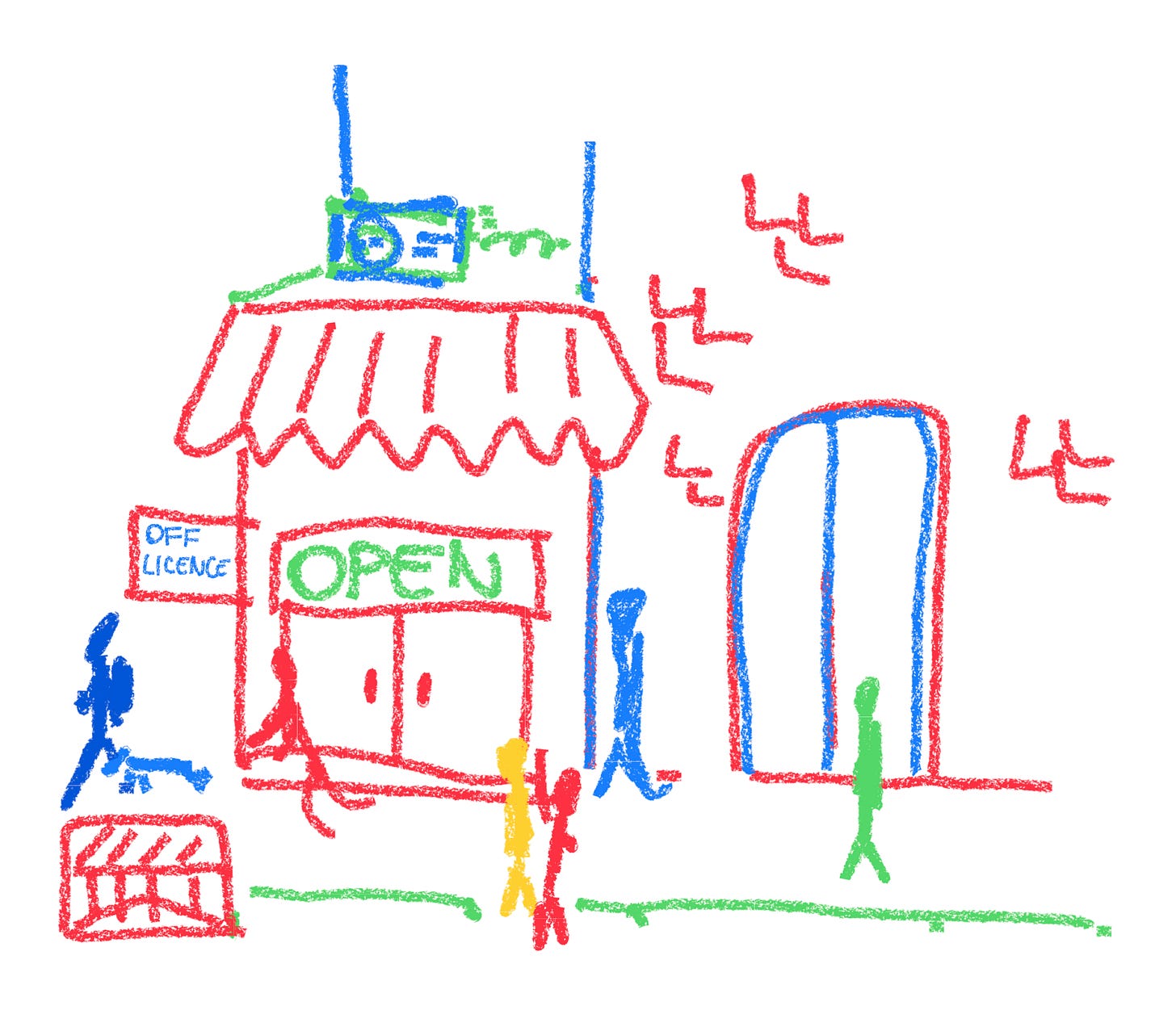What small shops do better than startups
What competition can teach and why sometimes we hear a lot, but we just won’t listen.
You are in a shop. You look at the freezer, scouting for your favorite ice cream brand. Trouble is, no matter how hard you look, it just doesn’t seem to be there. You ask the shopkeeper if they sell Little Moons.
“What’s “little moons”, sir?”
“Oh it’s this, this…it’s like ice cream, but it’s made of rice, and…”
“ think I got it, is it this one?”
The shopkeeper shows you a picture on his phone’s cracked screen. You nod, happy to see what you were after - at least on the small screen.
A week after, Little Moons are stocked in that very same freezer. You are happy. You take two boxes from the freezer and bring them to the counter.
“Hey, so you are stocking these now?”
“Yeah, I mean, you asked for it so we ordered a small batch and if more people buy it we’ll keep it in stock.”
”Hey sounds great, thank you!”
As you walk back home (we are in London, so yeah, we can actually walk back home) you start thinking about how fast the shop restocked only because of your request.
And this is why you go back to that shop - because they listen.
It’s just an example
It is just an example but the core problem addressed by the shop is the core problem that most startups cannot help but avoid.
Most startups don't want to listen to their customers.
It doesn't matter how many times you are going to repeat “If I had asked people what they wanted, they would have said faster horses.” I know Henry Ford - everybody knows Henry Ford.
You know what Ford did? Ford invented a revolutionary method of transportation and made it possible to purchase it on a salary. Of course he was not going to ask his customers what they wanted. They wouldn’t know what a car was.
Fast forward several years and yes - there is a lot of room to create novel products - but there is no room for excitement, because there are new things popping up every other minute.
It’s the economy, stupid
“It’s the economy, stupid” - Bill Clinton rocked this slogan in the 90s. I wasn’t even born but I can imagine the effectiveness of that slogan.
In perfectly competitive economies, firms do not make profits. And this is why perfectly competitive economies only exist in textbooks.
First exist to make profits (Startups exist to create value, but this is a different story) and firms that have a hard time making profits succumb to competition.
Competition erodes profits and creates the conditions for some very interesting things to happen.
Competition forces companies to really deliver to the customer.
Competition creates better service quality.
Competition fosters efficiency as a means to recover profits lost to competition itself
And so much more!
And these are just some of the things that competition does, and I won’t ahem - delve - (I swear I did not use chatGPT to write this) deeper into this matter.
If you think about it, some competition is always good for the economy. Unless we are talking about natural monopolies. Ah, economics! But yes, most of the time, under normal conditions, some competition is a lot better than no competition.
Competition forces small businesses to scrounge for profits because they're up against a never ending line of competitors. Think of small shops in London. There’s so many of them. And you can find pretty much anything there, although they do tend to stock different items depending on the area. If you are charging 6 £ for a Magnum you are not going to attract many customers.
Small shops teach the art of listening
If there is one thing that cannot be ignored is the exceptional listening ability of small shops. They will understand what you want because they want you to come back.
I was recently working on my first product and I was wondering if I was not being overzealous on the additional features we were implementing. Is it really needed, all this extra effort?
I think it was - but I’ll write about this some other time.
The problem with building a product is that sometimes the best approach is to invent and test with users. I think this is the best and most effective way of testing ideas. There is no better way, really.
Unfortunately, this requires product people to dream and then see their very dreams getting shattered, which is good, albeit a bit painful.
Sometimes arrogance can drive us to create products that the market does not need. I myself always try to look at the market first.
Small shops teach you that. When a small shop owner takes the initiative and buys your favorite ice cream brand, well - you know that you gotta buy it.



